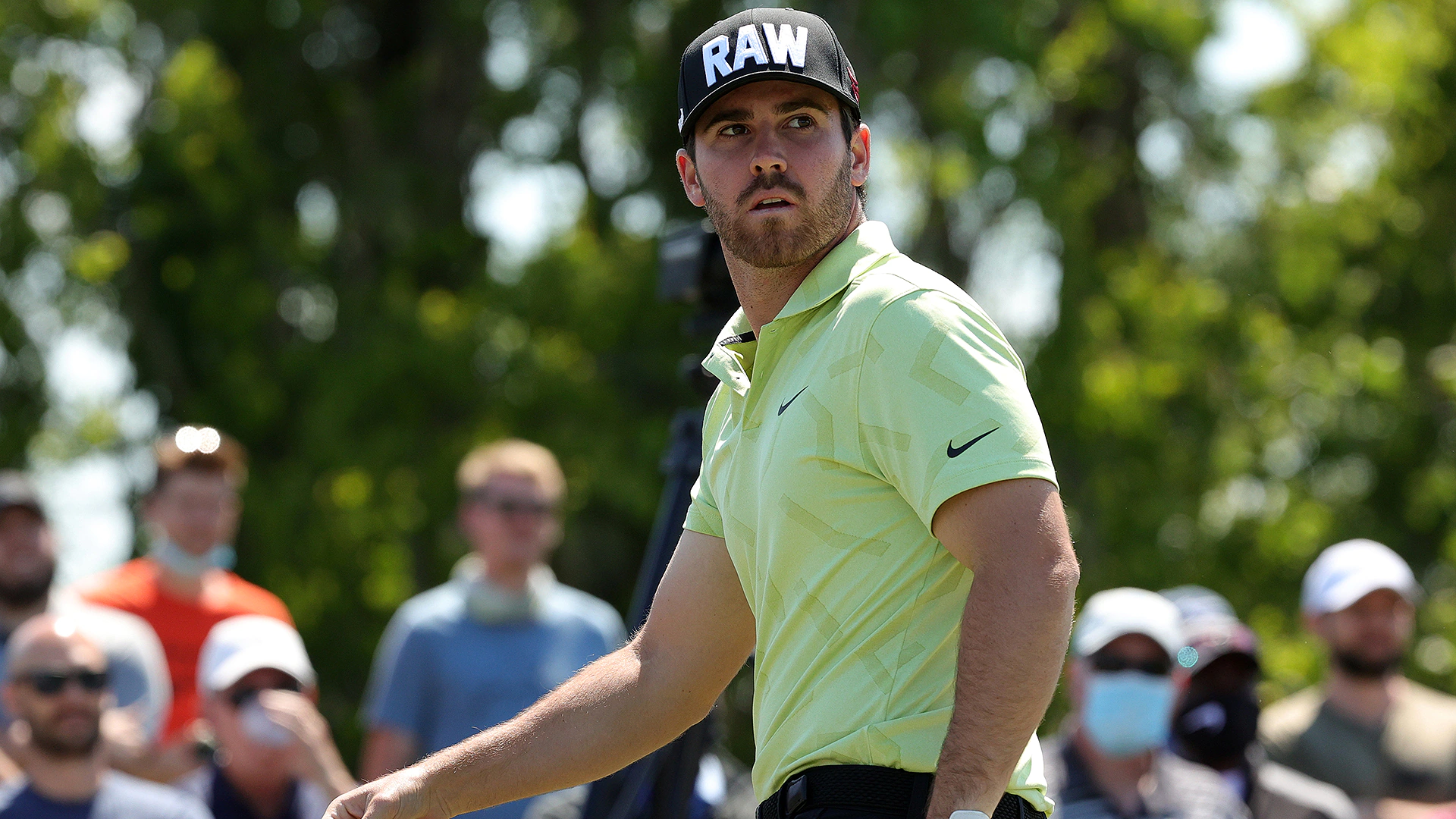2021 U.S. Open: Matthew Wolff returns after two-month absence: ‘Trying to just be happy’

SAN DIEGO – Think about Matthew Wolff nine months ago: Millionaire, hotshot 21-year-old, bona fide superstar. When he strolled onto the first tee of the 2020 U.S. Open, staked to a 54-hole lead, gunning for history, he was chatting animatedly on the phone. He wasn’t getting last-minute advice from his swing coach or sports psychologist. No, that’s not his style. He had called up one of his buddies. He wanted an update on the early slate of NFL scores.
That innocence of youth has largely disappeared after what has been a miserable 2021 both on and off the course.
Wolff has dropped nearly 20 spots in the world ranking, to No. 32. He doesn’t have a top-35 finish since the fall. He has withdrawn from two tournaments and been disqualified from the Masters for signing an incorrect scorecard. But he’s also been so unhappy that he stepped away from the game to work on himself. His return here at the U.S. Open is his first start in two months. He spoke to a reporter for the first time since January, following a nine-hole practice round on Wednesday.
“I still love golf. I still like going out,” he said. “Trying to just be happy. Pretty much it.”
U.S. Open: Full-field tee times | Full coverage
Updates on Wolff’s status have been the source of much intrigue over the past few months. Did the kid who should have just graduated college experience too much fame, too soon? Was this proof that his critics were right about his funky swing? Was he already a cautionary tale? Wolff knew that taking a break would prompt all of those unpleasant questions. He didn’t care. He knew, for him, it was the right decision.
“As much as I want to please everyone and be here for the fans and play well,” he said, “at the end of the day, I just want to be happy.”
When he bombed out of the WGC-Workday Championship at The Concession in late February with an opening 83, then a withdrawal without an official reason, those around Wolff suggested that he was struggling amid the isolation of the COVID era. That was a logical explanation: At 22, he was younger than all of his peers. He didn’t have a family to come home to. His loyal swing coach, George Gankas, didn’t travel to many events. An extrovert needing to draw from the energy of others, Wolff, like everyone else, instead retreated to his hotel room, alone.
“It’s just life,” he said. “Stuff doesn’t go your way and you get down on yourself. When you’re out here, it’s hotel rooms and traveling and there’s no separation between golf and life. Golf is life when you’re out here. When things aren’t going your way, it’s hard to put things in perspective. But you’ve just gotta be happy. If you’re not enjoying yourself and if you’re not being happy, it doesn’t matter how much money you’re making or what you do, it’s probably not worth doing. So I’m just trying to find what makes me happy.
“Golf makes me happy, no doubt about that. But how am I gonna get to where bad shots don’t affect me as much. Everyone has bad days and tournaments, and I’m starting to get a little better. Nothing is, like, wrong with me. Life is sometimes not all peaches and roses.”
So, why come back now?
Wolff was the only top-100 player in the world who missed last month’s PGA Championship. Hearing him speak, it’s clear he’s not the same bundle of energy who bounced down the fairways nine months ago at Winged Foot. As he said Wednesday: “Nothing is going to get better with the snap of a finger. You just have to keep working.”
And so Wolff returned here at Torrey Pines because he loves being back in his native Southern California. Because if he shoots high scores, he won’t be alone. And because, well, he had to return sometime.
“I just felt like, if you put it off, it’s gonna keep getting worse,” he said. “I’m not doing it because I have to. I just feel like you need failure to have success. I’ve had failure but I’m starting to learn and mature and get better, and I realized I need to be out here and play my way through it.”
Wolff also felt buoyed by superstar athletes who have recently come forward to talk about the importance of mental health. This wasn’t his fight alone. It never will be.
“We’re not puppets. We’re not owned,” he said. “We’re still people. We have feelings, and stuff isn’t always easy for us. I’m happy to be out here. I have the people I want out there, and I’m looking for a good week.”
